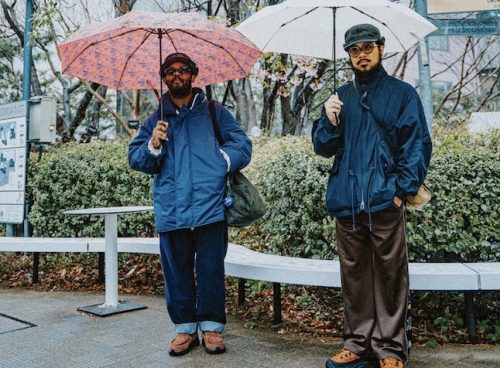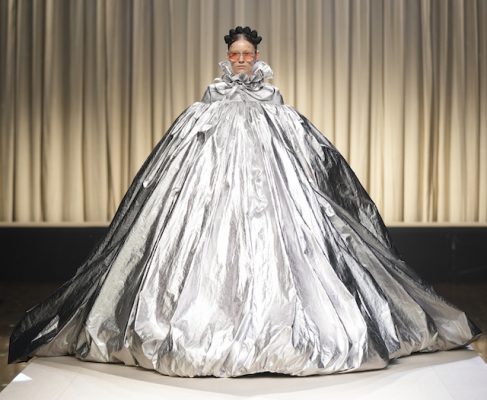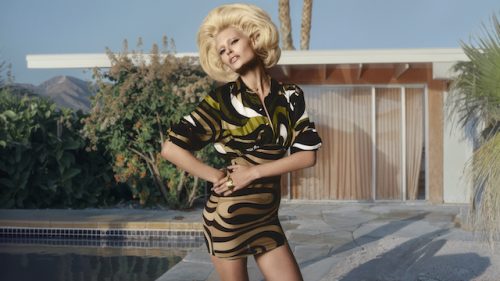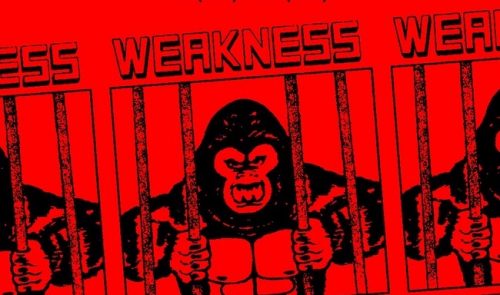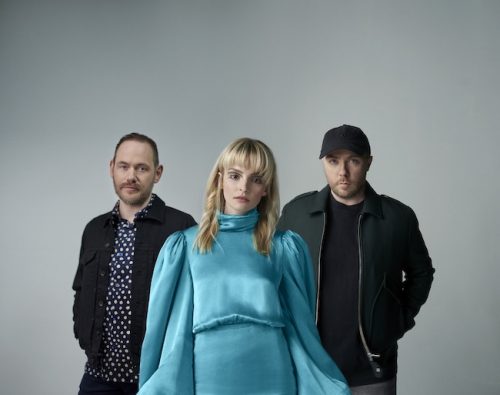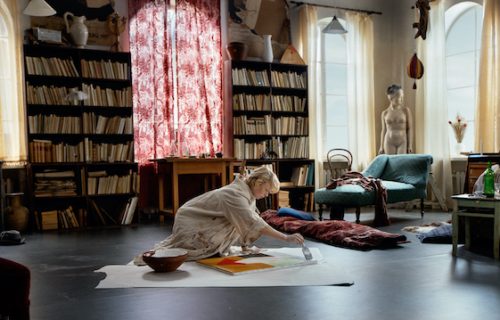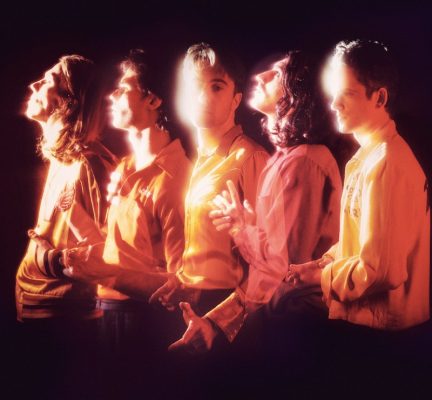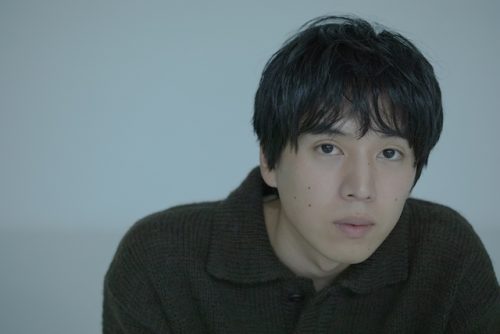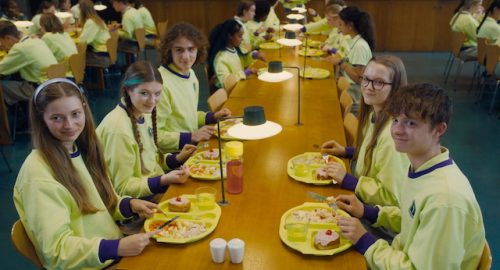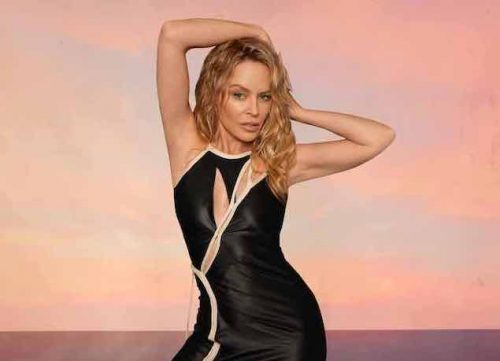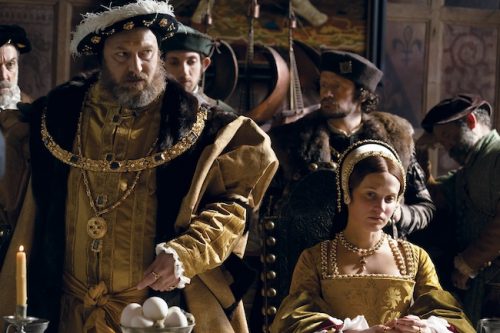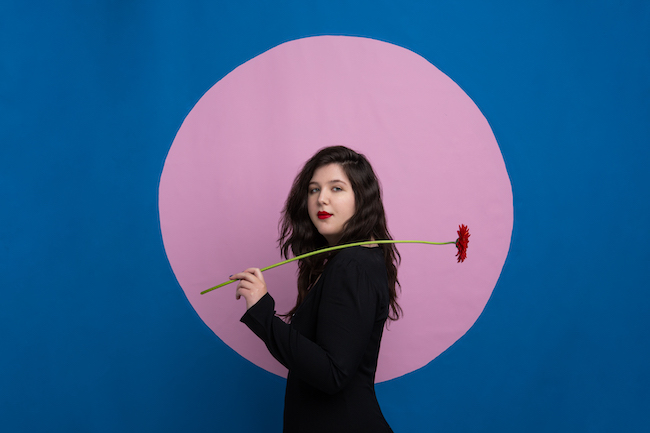
– Congratulations on the release of your new album, “Home Video”. Your album was released a week ago, already there are so many great comments about the album. What does this record mean to you?
Lucy : I think I’ve always written about personal things. But this is the first time I wrote songs for myself. Like I expressed my perspective in a really specific way. It may have made a few people in my life unhappy. And I needed to be honest about what I think.
– You mentioned that this album is for yourself, and you have been doing this before. This time it’s so detailed, so dramatic, there are so many characters in the song as well. How did this transition happen?
Lucy : I think I feel safer now than I ever have before, like where I live and in my relationships. And I think that when you feel safe, you open yourself up to all the things you didn’t get to process in the past. So I feel like I can handle it. Like reclaiming the past and taking on all these memories. It’s not always easy but I count it as a blessing that my current surroundings make me feel like I can approach those things.
– Was it satisfying or rewarding?
Lucy : Yea.
– In an interview with MMA, you said that “I am pretty deep into completing my third record.” Do you remember that?
Lucy : Like about Homevideo? Yea. Whenever I put out a new record, the next record is pretty far along. That’s even true this time. I made this record so long ago that if someone made me make a record tomorrow that I would have the songs.
– What was the hardest thing this time? What did you have to put the most focus on?
Lucy : Not the music. The music was really fun and easy. It felt very rewarding. I think the hardest thing would honestly be building up the confidence to put it out, not worry about other people. Just owning it like I have to do this for me. It hasn’t been easy, even yesterday I had a talk with my mom which was difficult. I think it’s very important to be honest, at least to me. Maybe not everyone but at least to me.
– Was it natural to you to be honest, and talk about yourself on the record?
Lucy : I guess it was a new natural. I don’t think it was natural for me, but because I was so comfortable, suddenly I was wearing these clothes that were personal and revealing. I was surprised by it. But it doesn’t come naturally. I don’t know why I felt compelled to do it. Cause some people don’t share this much and it’s fine. There is plenty of musicians that don’t give as much information as I do. And I could be those musicians. I guess that’s just not how I do things.
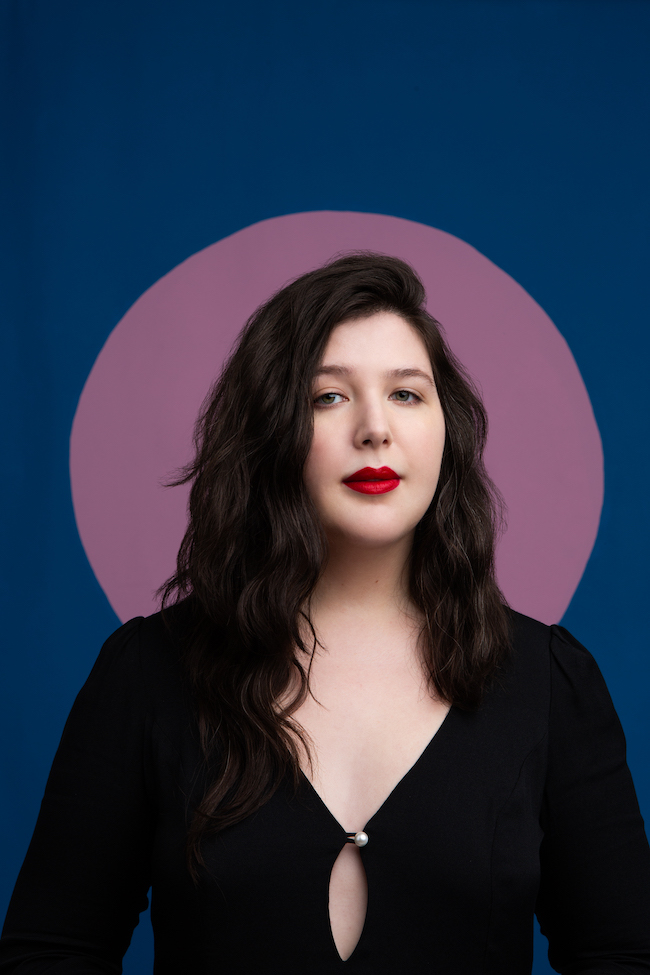
– Looking back at your old memories, or history, it’s fun but you get confused sometimes. It could make you emotional and bittersweet. What do these memories evoke you?
Lucy : I think ‘Bitter sweet’ is a perfect word. When I was finishing “Hot and Heavy”, the last line is “it’s bittersweet to see you again”. I was worried that it was too simple or corny. But it was the perfect word.
I feel like it’s nostalgic, feel warmth to it but it’s also kind of embarrassing. It’s kind of humorous, it’s good practice to laugh at yourself. So I’ve done a good deal of that too.
– Through doing this, did you discover or notice anything?
Lucy : I think I’ve learned that what I care about most is bringing people together. I’ve only wanted to do that since a child. I was always performing because my mom was involved in the theatre so I would be in shows. My dad was filming me making videos all the time.
-I didn’t learn a separation between being observed and not being observed. They taught me to expect to be watched. So I didn’t become a flashy performer, but I became used to it in a way.
– Now as an adult, looking back at your childhood and times as a teenager, what kind of person were you?
Lucy : I was a people-pleaser. I feel like I wanted to make people happy. Like make my parents proud, my church happy, make my friends happy. I even had a secret club with a few of my friends called the Joy Bandits. We would pick a random person and study them, figured out what they liked and surprised them with what they liked, like gifts or a party. We just tried to make their day. I guess I was corky, I would walk through the high school hall blowing bubbles or give flowers to people. It honestly feels like I am a cartoon when I put it like that. I think I just liked watching people smile.
– That’s so sweet of you. What were movies or music you were into at the time?
Lucy : Once I got to high school I was really into punk music, 90’s rock. Before that, I only knew about Top 40, church music and Bruce Springsteen and Prints from my mom and dad. Bruce Springsteen and Prints are still favourites of mine, but I learned about the Ramones and Wilco. I’m from Richmond Virginia, and there was a noise scene, so I would go to noise shows. Also, I listened to Yo La Tengo, who is probably the reason why I am on Matador right now. I still like all of those bands.
– Were you into any culture?
Lucy : I wasn’t very cultured, other than Musical Theater because that’s what my mom did. When I was much younger, church culture,
I got into old movies when I was in high school, I went to shows and still went to my mom’s theatre productions. Never sports but recently I’ve been getting into sports and that’s fun. I hated sports because I thought Nationalism was bad, there was violence, masculine toxicity, but now I realize all of that is true, but you can see the unity that each person brings. The individual victories and stories of players, and it’s also very skilful. So I’ve got into soccer, tennis and I’m trying to get into basketball.
– On your track, “Brando”, you talked about you relationship between you and your friend.
Your friend talks about music and film. Are those things you watch or listen to?
Lucy : There are tons of references. There is “Casablanca”, “Street Car Named Desire” which is where Brando comes in, “It’s a Wonderful Life”, Fred Astaire and Ginger Rodgers, is when the black and white 40s romantic dance movies where there a man and women play off each other. And that’s how he wanted our relationship to be, where we were the main characters in an ongoing movie of life. He wanted his scene partner.
I think it’s worth saying that I’m being cheeky and critical of those songs. But I still love those movies. We didn’t have a perfect friendship but a lot of it was good. I just wanted to highlight the specific scenarios in friendships where someone is like making you feel dumb because you don’t know these things and they are the only person who can show you to be cool. That’s how I felt.
– What kinds of movies did you watch?
Lucy : I watch a lot of Hitchcock movies, I would just go search ‘Best movies of all time’ and just watched them. I loved Citizen King. I feel like I had higher tastes when I was a teen. Now I’m watching Oceans 11. We watched Space Jam. It’s a great movie. I like A24 movies nowadays. But at the time it was a lot of older black and white movies.
– Was there any music or films that empowered you as a teenager?
Lucy : Honestly, finding Bjork made me think about music differently. I don’t make music like Bjork, but it just showed me that you can stretch the boundaries of sound. You can sound angry, you can sound sweet, you can quiet or loud. You can write a song that makes sense or you can write a song that doesn’t make sense. You can create a whole world. I think that Bjork just blew my mind.
-Do you think your critical look on men, affect your music? For example “Brando”, is about this man who teaches you to be cool. And in “Partner in Crime” you talked about a relationship with an older person. In “Going Going Gone”, you talked about a man as well.
Lucy : That’s a great observation, and now that I’m thinking about that “Christine” is also about her boyfriend not being good enough for her. I guess I’m being critical of men. It’s interesting because you are the first person to put that together. I didn’t even realize I was doing that. I wasn’t doing that on purpose. Part of growing up and coming into myself has been admitting that some people who insisted they were right or insisted they were superior to me were wrong. They weren’t superior to me and those people were men in my life. I don’t know if this should be extrapolated to all of the manhood. But I think it’s not uncommon that men or boys tell younger girls that they are lost without them. Or they feel like they are allowed to lord over. I think I have lower patience for that than ever in my life. Plenty of men I love, but the ones on the lyrics were disciplinary.
– You started looking at this issue more, because of what is happening in the states. But maybe you were not conscious of it.
Lucy : I think I am going into consciousness more. Every individual story feels true, and I believe that man is bad. But I guess I hold a lot of stories of particular men that had been wrong, disappointing and hurtful. I think part of why I was able to come up with these stories and put words to these things is because of this movement, where more women talk about their experiences where they have felt hurt, abused or taken advantage of. I am grateful that it is something we can say out loud now easily.
– Do you think in the States or the music industry, the situation is getting better?
Lucy : It’s hard to know because in some ways it looks like it getting better, but I’m wondering if it’s just shaping into a new type of subjugation. Like how slavery never really went away in the US. It went from slavery to the Industrial complex.
Now women can vote, but they are still not getting paid the same. In courts, assault cases aren’t respected universally. There are still laws that don’t respect the words of a woman. I guess it does feel closer, I wasn’t alive many decades ago. I’d like to think yes but it’s hard to say. I’m hoping that even beyond womanhood, the struggle for equality, equity includes trans people and any non-men. I am excited to expand in that way.
– On VBS, you talked about a bible camp experience as a kid. And you mentioned in a previous interview that you aren’t Christian. Do you think being raised as a Christian has had an impact on how you think, who you are and your music?
Lucy : Yes, a huge impact. Sometimes I’m grateful for it, other times it’s such a burden. I’m happy that I learned about patience, forgiveness and love. I was taught at a young age to respect people, think about death and think about my actions. But some lessons from church about purity, behaviours, certain value systems that I didn’t believe in anymore. I spent so long unlearning those things and I feel like I lost time to them. In a way it makes me feel mournful.
– Your song “ Triple Dog Dare” was about your friend’s mom being Catholic and Psychic. Do you think it affected your music?
Lucy : Yes. Not the sound, but growing up singing church music and musical theater taught me that music serves the purpose. It is communicating something. In a musical it has to move the plot forward, in church it has to evoke emotions and send a message to the masses. I think that in my songwriting, I always felt that I need to communicate something. It needs to be precise and serve a purpose. So I don’t think my music sounds like church music or theater, but it has influenced my songwriting.
– You moved from Richmond to Philpapehia. How was it like having a new life?
Lucy : I love it. Phili is a good place. I have so many friends here that do music, some don’t and that’s nice. I live in a house with friends I have known for over ten years. It’s been tough during quarantine, not being able to know the city. But everyone I know is vaccinated and I hope the same for everyone all over the world. We have friends that are staying the night tonight. I just heard them laugh downstairs. It’s just nice to have that close at hand.
– Did anything change in a good way since you moved to your house in Philadelphia?
Lucy : I feel like my muscles untensed and I didn’t realize they were tense. I don’t feel as watched. I felt very watched and judged in Richmond just because it was a small place that a lot of people knew who I was. So going out to eat, people are watching me. And even if our interactions were really short, I didn’t have privacy. Honestly wearing a mask has been awesome. I could go anywhere and it’s fine. When I see people in Philli, they know me for my music. That’s not complicated, but in Richmond, it’s like ‘we were in second grade together’ or ‘my aunt is your art teacher’ or ‘I used to go to the church you went to’. Everyone knows me in multiple ways so it feels too much.
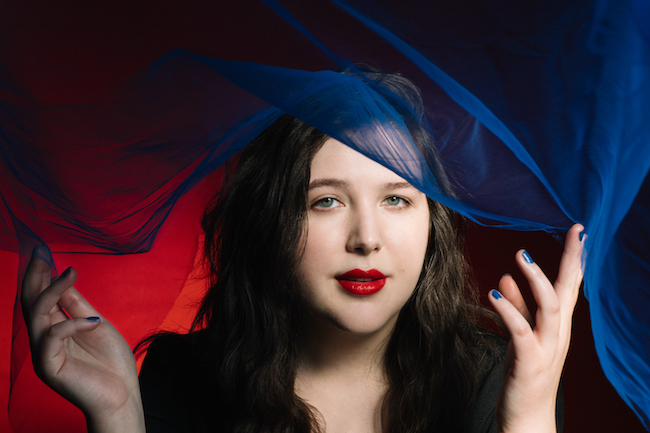
– We heard that one of the reasons you moved to Philly was because you couldn’t protect your privacy. Everyone started knowing too much about you through your music. It’s hard to keep a balance. You want to put your music out, but you want to protect your territory too. What does making music mean to you?
Lucy : It doesn’t feel like an option. What it means to me is that I can get to know myself. Without it, I might pick up some other form of art. I think I need a creative expression to know what I think at all. Because I don’t have an internal dialogue. When I think I don’t think in words. So I would need to be writing or externalizing it. Without making music I would feel lost.
– To make this record, you communicated with yourself in the past. If you were to give her some advice, what would you say?
Lucy : If I had the chance, I wouldn’t take it. Cause I wouldn’t change anything. I’m happy with where I am. But if I had to say something, I would say, “It’s ok to be gay” and “Don’t date that one guy”. Overall, I like where my life is headed, so I wouldn’t change anything.
– Yes, everything you did before makes who you are now.Can you pick one track that you listened to a lot during the pandemic? And give us a reason why.
Lucy : It would be Traumerei by Robert Schumann. It’s a piece of classical music, a short beautiful piano song. It’s just calming. I listen to it, I love the melody. It makes me feel like I can slow down and breathe.
– Do you listen to classical music a lot?
Lucy : Not a lot but I do love it.
text Junnosuke Amai(TW)




